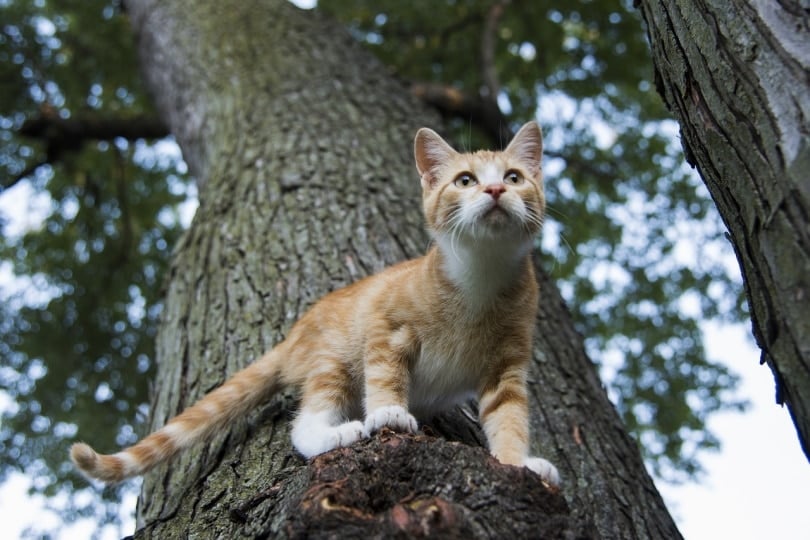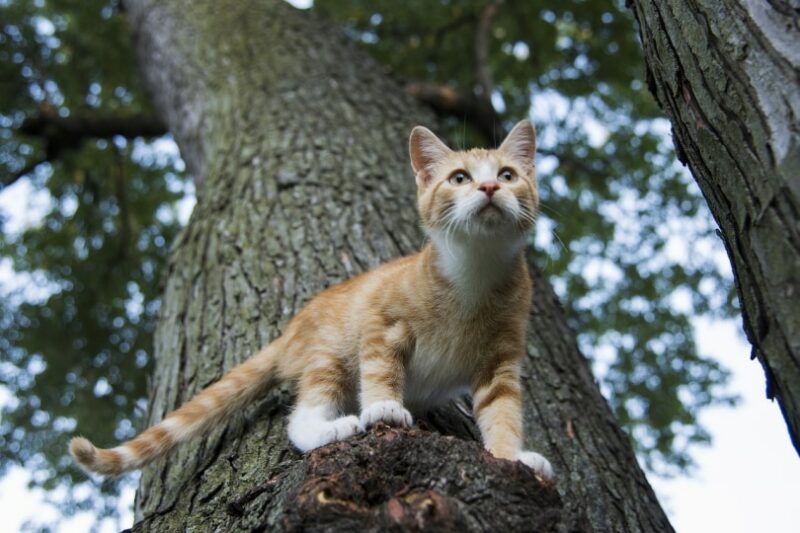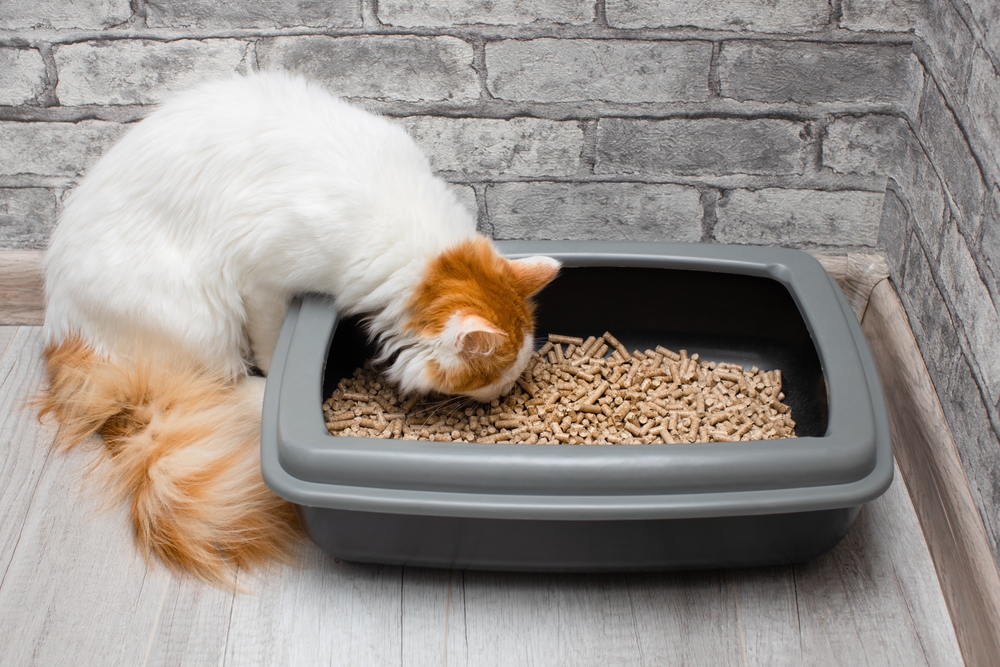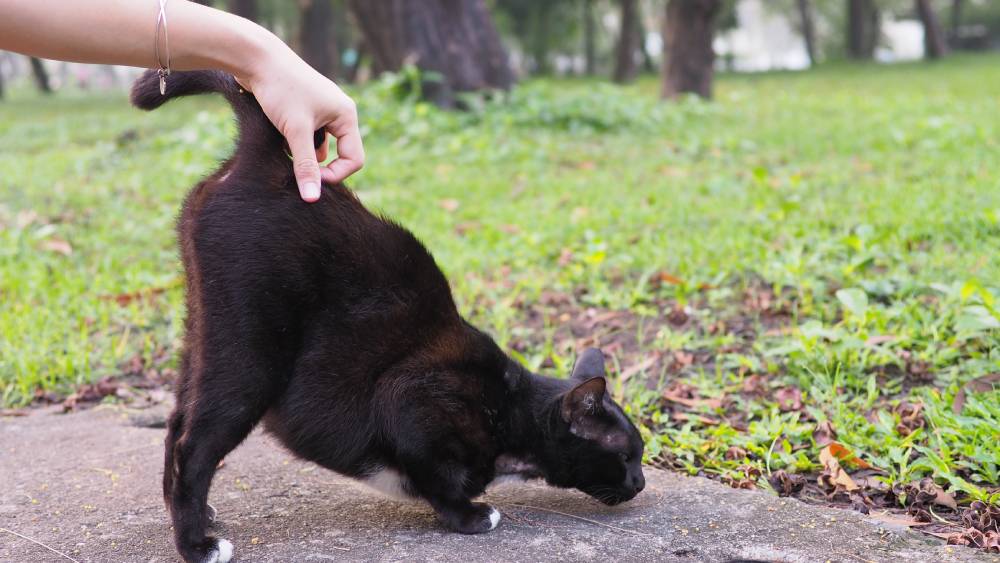Cats are unique creatures that form strong bonds with their young. Though mother cats may be fiercely protective of their kittens, they don’t remain with them forever. In the wild, kittens become more independent from their mother as they reach around 12 weeks of age, but they may still stay with the mother cat for months or even longer. It is not uncommon for feral cats to live in colonies with some of their offspring, particularly if they get neutered or spayed.
Entire male and female cats will start roaming and exploring more as they reach sexual maturity (around 6 months of age), when they may leave the colony and often get hurt or even killed in traffic. It is important to understand the stages of development and timeframe for independence for wild cats in order to provide the best care for a kitten or feral cat family.
Gestation Period of Cats
The gestation period for cats is approximately 63 days from conception until delivery of the litter. This can vary slightly depending on the breed, exact time of conception, health of the mother cat, stress, and other factors. During this time, the mother will prepare her nest, and if a cat is an owned pet, they will require a high-quality food to ensure she has enough nutrients to support herself and her unborn kittens.
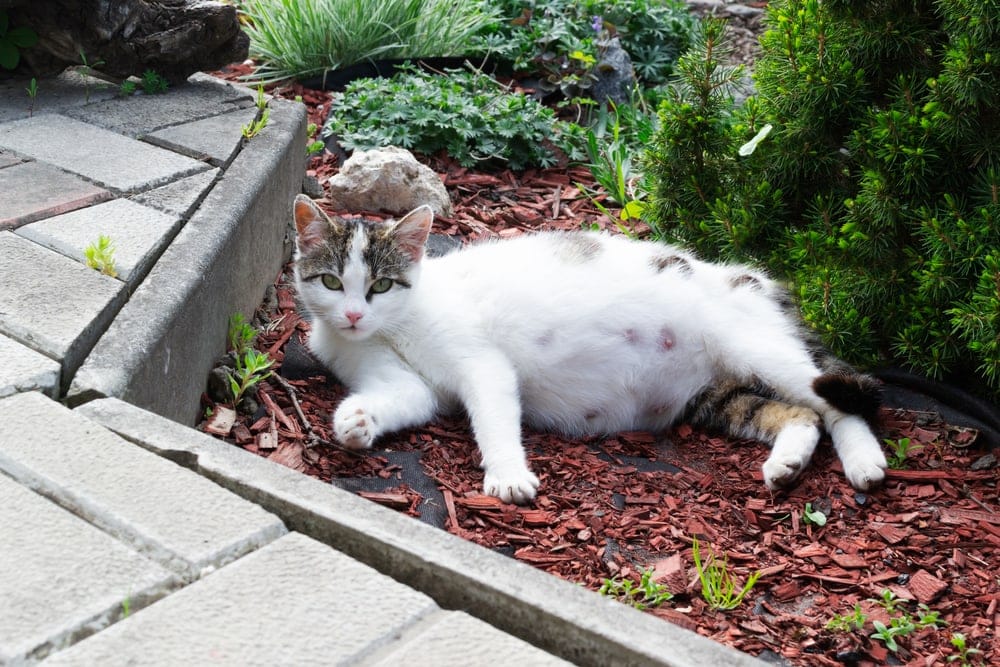
Developmental Stages
Kittens typically go through several developmental stages during their time with the mother. During the first 2 weeks, kittens are completely dependent on their mother and will feed exclusively on her milk. From 3 to 4.5 weeks of age, they slowly start to show interest and may taste solid food.
Kittens tend to become more active and inquisitive between 6 and 8 weeks of age when they start exploring their environment, jumping, running, playing more, and becoming more coordinated. They are weaned at this stage, in most cases.
By 12 weeks of age, kittens are gradually becoming ready for independence from their mother but are still in the process of developing all the necessary skills needed for adult life in the wild, and this may take months. They are likely to stay with their mother during this time.
Timeframe for Independence
Once a kitten reaches 12 weeks old, it is expected that they are becoming more independent from their mother, and in some cases, the mother may even leave them for prolonged periods. Though it is normal for the mother to be absent from time to time, she should not remain away from her kittens for long periods of time. It is important for them to stay together until they are fully independent as it helps strengthen their bond and teaches them important skills, such as hunting and staying hidden from potential predators and dangers. Such skills usually take months to be perfected.
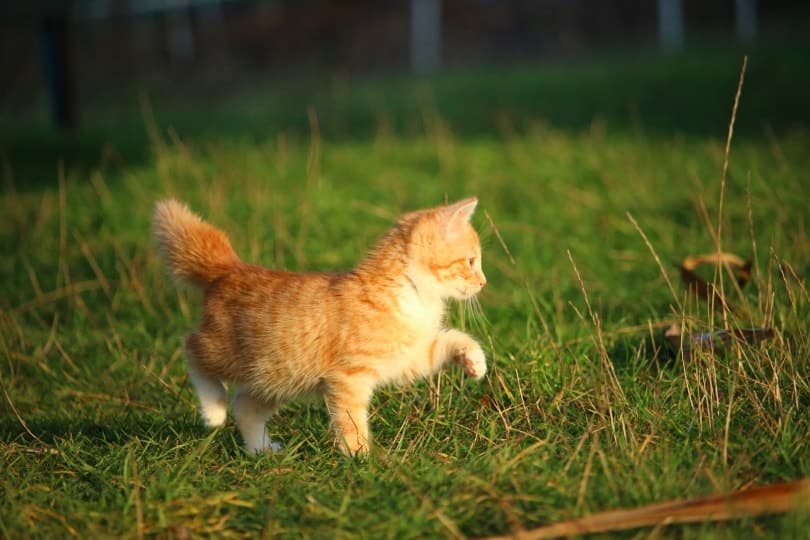
Skills Required for Independence
Kittens must have certain skills in order to survive on their own. These include but are not limited to: hunting for food, avoiding potential predators, competing with other cats or animals for resources and territory, learning to groom themselves, finding a safe space or shelter to rest, and knowing how to communicate with other cats. If they do not possess these skills when the mother leaves them, there is an increased risk that they will not survive in the wild.
How Soon Can Kittens Be Adopted?
Though kittens can be adopted as early as 8 weeks old, in some cases, depending on their breed, size, weight, and vaccination protocols, it may be recommended to wait until they are around 12 weeks old before adoption. This allows time for them to grow more, gain more confidence, learn important socialization skills from their mother, and acquire litter box training before moving to their new family, which will be a stressful event.
A good way to tell if a kitten is ready to be adopted is by observing their behavior. A 12-week-old kitten should exhibit confidence and playfulness, should calmly and adequately interact with people from the household, and should demonstrate independent behaviors, such as exhibiting attempts at hunting behavior and exploring their environment. If you have any questions or concerns about the readiness of a particular kitten, it is best to consult with your veterinarian.
However, this timeline and advice may differ when it comes to exclusively feral kittens that you may wish to rescue or adopt, as they may become quite fearful around people after 8 weeks of age. That is due to lack of socialization of their mother with people if she is feral, and the kittens will learn to stay away from people and consider them a threat. This is also very individual, and some kittens may be more easily approachable than others.
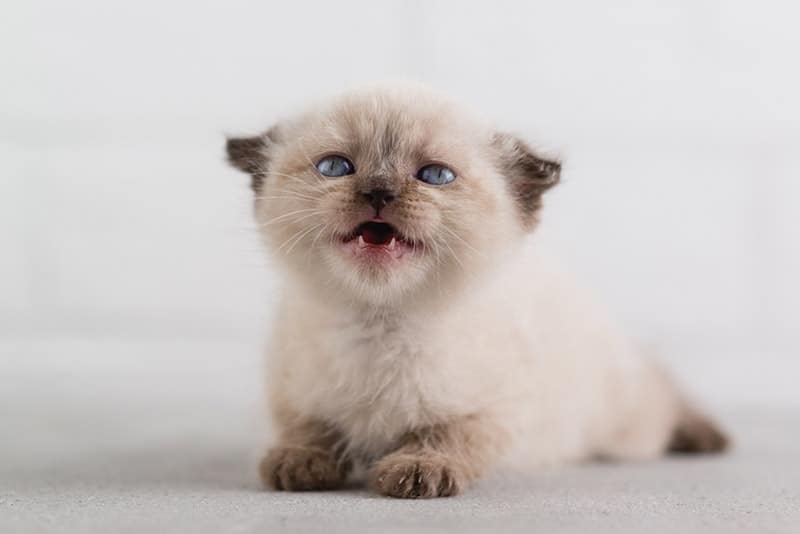
FAQs
Is It Normal for a Mother Cat to Leave Her Kittens?
Not quite, and it depends on the kitten’s age. If the mother leaves her kittens while nursing them still, it may indicate that she is stressed, scared, ill, or is sensing that one or more of the kittens are sick or weak. On the other hand, it isn’t entirely uncommon for mother cats to start leaving their kittens after 12 weeks of age for longer periods, as this is when they start becoming more independent, and they may start exploring further away from their safe place. The mother cat will still keep watch over them and should not be away from them for extended periods of time.
What Should I Do if I Find a Mother Cat With Kittens in the Wild?
It is best to leave them be unless they are in immediate danger or need medical attention, or if the mother cat has abandoned them. If you are concerned that the kittens may become too independent and difficult to get caught before they have received proper care and skills, contact your local animal rescue organization for assistance.
Are Kittens Able to Survive on Their Own if They Are Separated From Their Mother?
It is possible for kittens in the wild to survive on their own, depending on their age and individual circumstances, but there is an increased risk of serious injury or death due to a lack of experience with predators, inadequate nutrition, and difficulty finding shelter. Therefore, it is best for them to stay with their mother until they are at least 12 weeks old, but ideally longer, unless they will get adopted or rescued.
What Is the Best Way to Care for Abandoned Kittens?
The best way to care for abandoned kittens is to contact your local animal rescue organization or the vets. They will be able to provide the necessary medical attention, nutrition, and socialization that abandoned kittens need in order to survive and thrive. Additionally, they may be able to find a suitable home for them. If you plan to raise the kittens yourself, make sure to consult with your veterinarian for proper care instructions. Kittens often have intestinal parasites that they pick up from their mothers and will need specific worming and vaccination protocols.
What Is the Best Way to Rehome a Kitten?
The best way to safely rehome a kitten is through an animal rescue organization. They can provide proper vetting, preventative healthcare, neutering, and socialization for the kittens so that they are ready for their new home. Additionally, these organizations often have adoption events in order to find suitable homes for each of the kittens.
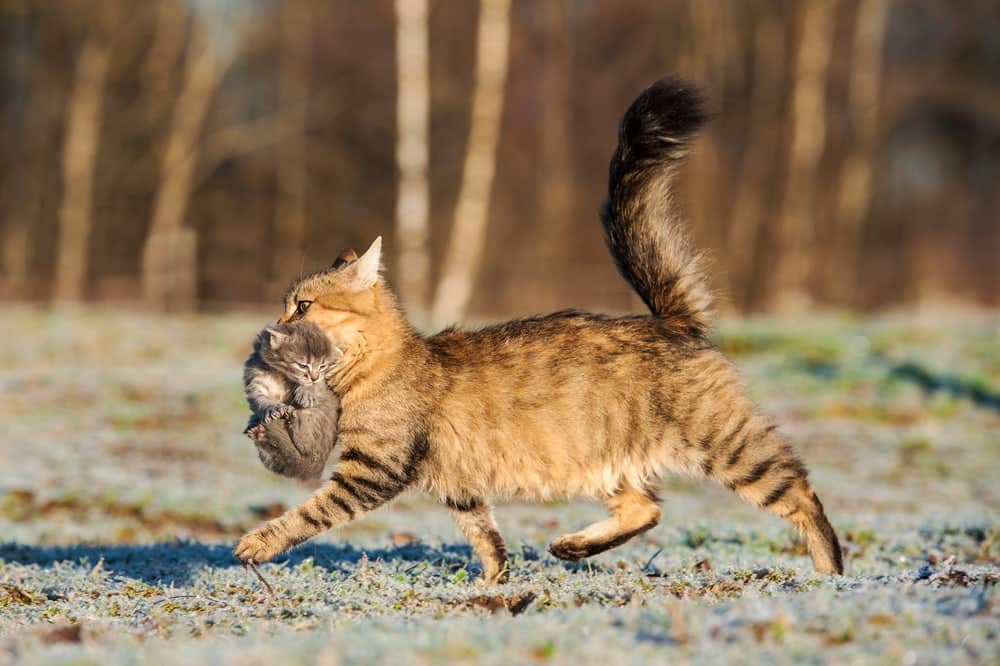
The 10 Tips for Raising Healthy, Independent Kittens
- Provide a comfortable place for them to sleep, such as a warm, safe, and cozy bed or box.
- Supply plenty of fresh water and nutritious food on a daily basis.
- Offer toys that encourage physical activity and stimulation, such as scratching posts or balls with bells inside.
- Introduce the kittens to people and other animals in a safe environment, to ensure that they become comfortable in different circumstances.
- Provide regular medical care, such as vaccinations and flea treatments.
- Don’t separate the kittens from their mother until they are at least 8-12 weeks old, so they can learn important skills from her.
- Spay or neuter your kittens when they reach 4-5 months old, or based on your vet’s advice.
- Allow them to explore the house and outside areas in a supervised manner, so they can become comfortable with their surroundings.
- Spend time playing with them and teaching them commands so they can learn valuable skills that will help them stay safe.
- Monitor their behavior and contact your veterinarian if you notice any signs of illness.
Conclusion
Though mother cats may start leaving their kittens at 12 weeks old for prolonged periods of time, they are still the primary caregiver up until this time. It is important to understand the timeline of development and skills required for independence in order to ensure that feral kittens are able to thrive in the wild.
It is also recommended to wait a minimum of 8 weeks of age before adopting a kitten in order for them to get the best possible start in life. However, when it comes to feral kittens, it’s important to socialize them and get them used to people before this age, as they may be too hard to entice with food afterward, as they will learn to fear people.
Featured Image Credit: sspiehs3, Pixabay
Contents
- Gestation Period of Cats
- Developmental Stages
- Timeframe for Independence
- Skills Required for Independence
- How Soon Can Kittens Be Adopted?
- FAQs
- Is It Normal for a Mother Cat to Leave Her Kittens?
- What Should I Do if I Find a Mother Cat With Kittens in the Wild?
- Are Kittens Able to Survive on Their Own if They Are Separated From Their Mother?
- What Is the Best Way to Care for Abandoned Kittens?
- What Is the Best Way to Rehome a Kitten?
- The 10 Tips for Raising Healthy, Independent Kittens
- Conclusion

